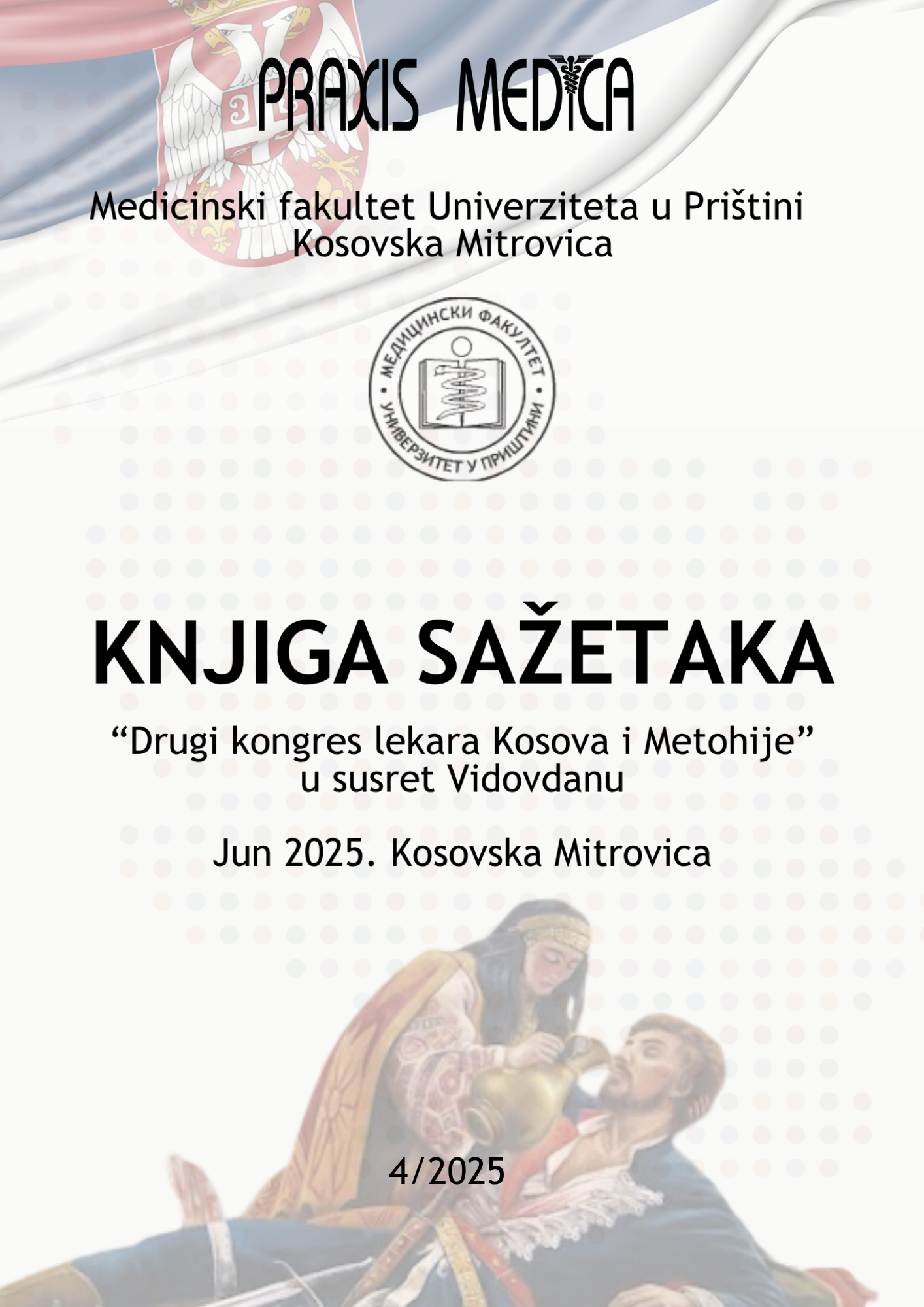Current issue

Volume 53, Issue 4, 2025
Online ISSN: 2560-3310
ISSN: 0350-8773
Volume 53 , Issue 4, (2025)
Published: 30.06.2025.
Open Access
All issues
Contents
01.12.2020.
Professional paper
Prevalence, etiology and treatment of psychogenic aphonia in children: A case report
Introduction. Emotions are one of the most important psychological processes, with a decisive influence on a person's voice. Faced with the great challenges and changes that primary and secondary socialization agents impose in the process of growing up, children consequently experience a spectrum of various unpleasant feelings: anxiety, fear, anger, frustration and sadness. Due to the fast-paced lifestyle, it often happens that the child ignores unpleasant feelings, which further worsens the condition in which he finds himself. Among other conditions, psychogenic aphonia in children has become more frequent in recent years. The current case report aims to determine the frequency of psychogenic aphonia in children, to identify the most common causes that lead to psychogenic aphonia and highlight the methods of vocal treatment that give the best results during rehabilitation. Case report. The current paper presents the results collected in a two-year period at the Clinic for Ear, Throat and Nose of the Clinical Hospital Center "Zvezdara". In the period from March 2017 to May 2019, psychogenic aphonia was diagnosed in 31 patients, which is an evident increase compared to the previous ten-year period in which psychogenic aphonia was diagnosed in 38 younger patients. Analyzing heteroanamnestic data obtained from parents, the most common answer about the cause of psychogenic aphonia is dissatisfaction with school success. After successful diagnostics by an otorhinolaryngologist, psychiatrist and vocal pathologist, in the process of rehabilitation of psychogenic aphonia, methods of digital manipulation of the larynx, methods of restoring the voice with cough reflex and methods of turning out the feedback system were applied. In this particular case, the method of digital manipulation of the larynx gave the best results. Conclusion. Optimal evaluation of patients with voice disorders requires the joint efforts of experts from different disciplines. Having in mind the tendency of recurrence of psychogenic aphonia, these findings suggest that the integration of the interventions of a vocal pathologist and a psychiatrist could give effective results in the process of rehabilitation voice.
Mirjana Petrović-Lazić, Ivana Ilić-Savić
01.12.2020.
Professional paper
Sensory processing disorders in premature infants
Introduction. Children born prematurely have an increased risk of immediate medical complications, as well as socioemotional, cognitive, linguistic and sensory processing disorders later in life. Studies have examined the effects of prematurity on developmental outcomes, such as cognition, however, there is a need for a more detailed examination of sensory processing disorders in preterm infants. Not only is prenatal neurosensory development interrupted in utero, but these children may also experience intense stimulation in the neonatal unit, which can further alter the development and function of the sensory system. Objective. The paper presents an overview of research on sensory processing disorders in premature infants, with special emphasis on the impact of the environment of the neonatal unit. Method. Insight into the relevant literature was performed by specialized search engines on the Internet and insight into the electronic database. Results. Sensory processing disorders affect 39% to 52% of newborns born prematurely, with some evidence to suggest that children born before 32 weeks are most at risk. The literature to date has consistently reported difficulties in sensory modulation of preterm infants, within the tactile, vestibular, auditory, oral, and visual domains. Conclusion. Sensory processing disorders in preterm infants appear to occur as a result of their immature neurological and biological system and being in the environment of a neonatal intensive care unit, which is unable to meet the sensory needs of preterm infants. Altered sensory experiences, during periods of neurodevelopmental vulnerability and fragility, can result in sensory processing disorders, which may include enhanced responses or less response to stimuli (hyper or hyposensitivity).
Jelena Todorović, Mirjana Petrović-Lazić





